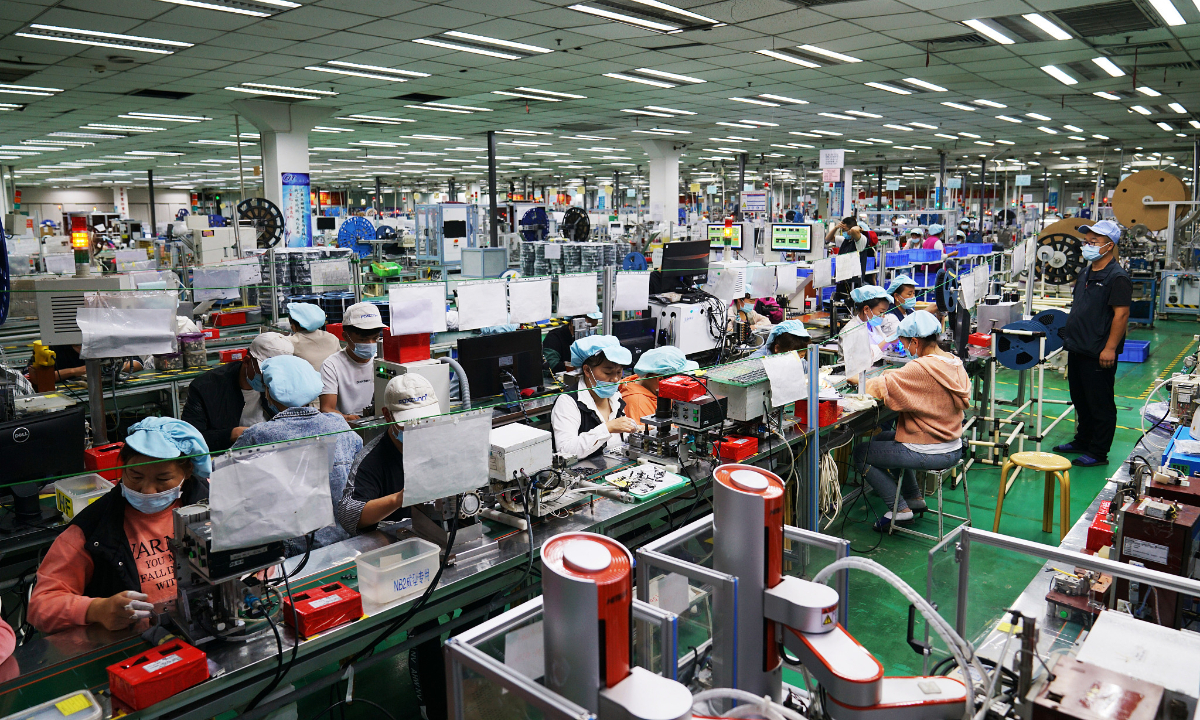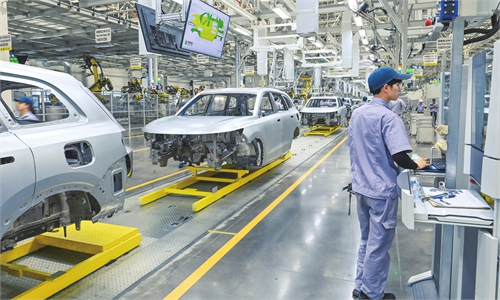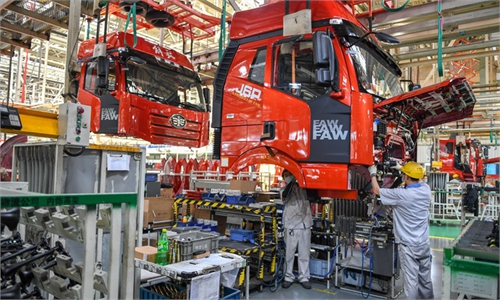China's manufacturing activity slows down in November as official PMI comes in at 48

Workers at a production workshop of Foxconn's technology park in Zhengzhou, Central China's Henan Province on September 4, 2021. The park is a major global smartphone manufacturing base. Photo: VCG
China's factory activity further contracted in November as COVID-related restrictive measures in multiple provinces and cities and weaker market demand hit manufacturing and export. Experts called for more policy stimulus in order to put the economy back on normal track as soon as possible.
According to data released by the National Bureau of Statistics (NBS) on Wednesday, China's official manufacturing Purchasing Managers' Index (PMI) fell to 48 from October's 49.2, missing expectations.
The 50-point mark separates expansion from contraction on a monthly basis.
The decline in the manufacturing PMI was mainly driven by the frequent outbreaks of COVID-19 in several parts of the country, combined with weaker market demand.
In November, the pandemic had a negative impact on the production and operation of enterprises, slowing down their manufacturing activities, according to Zhao Qinghe, NBS senior statistician.
The production index came in at 47.8 in November, a steep drop of 1.8 percentage points from October.
The new order index came at 46.4, down 1.7 percentage points from October, of which, the new export order index was 46.7, down 0.9 percentage points, according to the NBS.
"Those sub-indexes all point to dampened manufacturing activities and weaker market demand both at home and in overseas markets," Tian Yun, former vice director of the Beijing Economic Operation Association, told the Global Times on Wednesday.
The supplier delivery time index dropped to 46.7. Some surveyed companies reported that due to factors such as disrupted logistics, transportation and limited production activities across upstream and downstream enterprises, suppliers' delivery time lagged while customer orders decreased, according to Zhao.
"The manufacturing sector sees a contracting trend which badly needs a reversal," said Tian. "There is nothing we can do to boost overseas orders at the moment when other countries' demand slow with rising interest rates, but we can stimulate domestic consumption."
He called for more policy stimulus and necessary adjustment to the restrictive measures in preventing the COVID-19 that has impacted normal economic activities.
"The central government and local governments need a unified work plan for battling COVID-19, in order to shore up economic development," Tian said.
The NBS survey showed that enterprises of different sizes were affected in November as PMI tumbled from the previous month. The number of enterprises that reflected shortage of funds and insufficient market demand increased, with smaller businesses facing more acute operational pressure.
Although the impact of the pandemic on the economy is obvious, there are still positive factors, said Cai Jin, deputy head of China Federation of Logistics & Purchasing.
"The effect of ramped-up investment is beginning to show up. Business activity index for the construction sector stays above 62, which is a good phenomenon. And, pro-growth financial policies will aid the economy," Cai said.
China's services activity contraction also deepened in November. The official non-manufacturing PMI stood at 46.7 versus 48.7 in October, according to the NBS data.
Global Times


